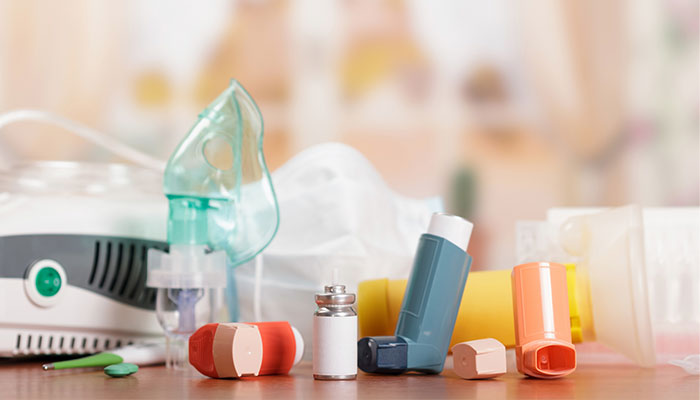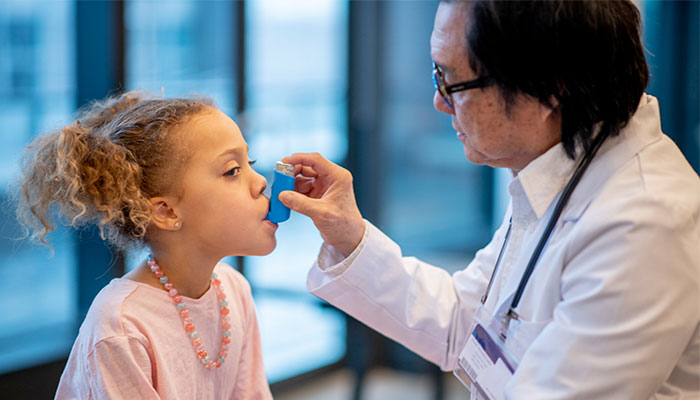Children who are hospitalised with asthma have a higher risk of not completing high school than their peers, a Macquarie University study has found.

Precious time: Boys have a 20 per cent higher risk of not completing Year 11 or 12 if they have been hospitalised for asthma, the study found.
Associate Professor Rebecca Mitchell, of the Australian Institute of Health Innovation at Macquarie University, said both boys and girls who were hospitalised for asthma had a significantly higher risk of not finishing Year 11 or 12.
"For boys, that translates into a 13 per cent higher risk of not achieving the national minimum standard (NMS) for numeracy when compared to their peers, and a 15 per cent higher risk of not achieving the NMS for literacy," she said.
"When it came to completing high school, young men had a 51 per cent higher risk of not finishing Year 10, and a 20 per cent higher risk of not completing Year 11 or Year 12.
"For girls, there was no difference in literacy or numeracy results or in Year 10 completion rates compared to their peers, but we noticed a significant difference at Year 11 and 12 level.

Risk management: Hospitalisation is a red flag that asthma isn't being managed as well as it could be, says Associate Professor Mitchell.
"Young women had a 21 per cent higher risk of not completing Year 11, and a 33 per cent higher risk of not completing Year 12."
These results come shortly after the release of another study led by Mitchell that found children who had been hospitalised for an injury were almost twice as likely as their peers to not finish high school.
For both studies, the research team used linked birth, health and education records in NSW from 2005 to 2018 to analyse NAPLAN assessment tests and high school completion for young people aged 18 and under who had been hospitalised.
This makes two significant studies from Macquarie into children with asthma, and both show in different ways that their care needs to be improved.
To create a peer comparison group, each young person was matched against a randomly selected peer of the same age and gender who lived in the same postcode, but had not been hospitalised.
On average, the children hospitalised for asthma spent a total of eight days as inpatients across three visits.
"Hospitalisation is a red flag that asthma isn't being managed as well as it could be," Mitchell said.
"Asthma specialists recommend developing management plans for children with asthma, but the Macquarie University CareTrack Kids study in 2018 found there was a fairly limited uptake of this advice.
"Care plans have been shown to work and could be being enacted for more children. When they're not, we can see here the potential effect on academic performance – and the potential ongoing effect on their lives due to reduced employment opportunities.

Room for improvement: On average, the children hospitalised for asthma spent a total of eight days as inpatients across three visits.
"This makes two significant studies from Macquarie into children with asthma, and both show in different ways that their care needs to be improved."
While this latest research analysed outcomes for children hospitalised with asthma, there is still the potential for future research to investigate the reason behind these outcomes.
"I would like to further investigate early intervention strategies for asthma management, to look at getting in early at the preventive stage rather than waiting for these poor performance flags to begin to appear," Mitchell said.
"Peer support, supplementary programs and extra tutoring could all be of benefit here. We need to be doing everything we can to ensure children who have been hospitalised for illness or injury have the same chance of achieving basic numeracy and literacy standards, and finishing high school and going on to tertiary study as their peers."
The research team is also in the process of finalising papers on educational outcomes for young people hospitalised for treatment of Type 1 diabetes, epilepsy, and mental health concerns, with results expected in coming weeks.
Rebecca Mitchell is Associate Professor at the Australian Institute of Health Innovation.






